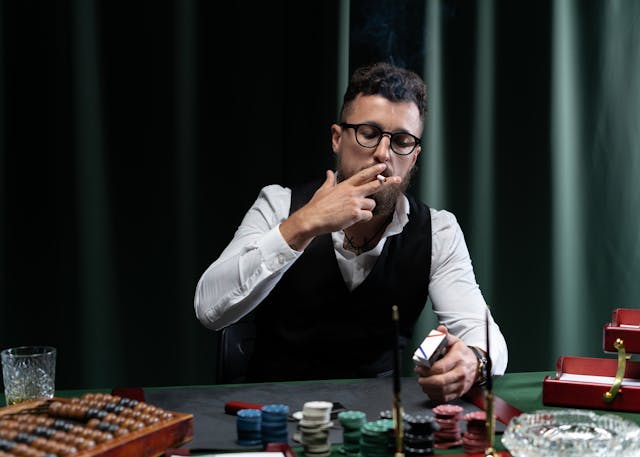
What is racketeering? It is a criminal act that usually involves extortion or a scheme to extract illegal profits.
Racketeering became a big thing on October 15, 1970, when the Racketeer Influenced and Corrupt Organizations Act became law in the United States. You may have heard of it in a movie because it is shorted to the RICO Act and it is used to try gangsters in many a movie. It was created in an attempt to stop the rise of the mafia and it did rather well. The 5 families still exist, but they wield far less power than they did before 1970.
The American mafia can trace its origins to the Sicilian mafia that began in the 19th century. The word “mafia” comes from “mafiusu”, which means “swagger, bravado”. The mafia sprang up in Sicily when feudalism ended in Sicily. All of the land had been owned by the nobility, but when feudalism ended, the land was sold to private landowners. The mafia appeared to “look after” the interests of these landowners. The Sicilian mafia entered America in the late 1800s and early 1900s and formed various gangs. Many of them were located in New York City because that was a major port of immigration and because it was a central base of power. The gangs fought and slowly amalgamated until, in 1931, there were just five of them, and they became known as the five families. They are the Bonanno, Colombo, Gambino, Genovese, and Lucchese crime families. Each family has a different territory.
The five families worked in their territories, occasionally fighting with each other, and slowly increased in power and wealth. They were heavily involved in extortion, gambling, money loaning, drugs, prostitution, and many other illegal business ventures. The police and the government wanted to shut them down, but they couldn’t. The police only had the power to arrest the people at the bottom of the organizations because they were the people that committed the crimes. They could arrest the dealers on the corners or the low-level enforcers and hope that they turned informant and gave information about their bosses, but that very rarely happened because they knew the consequences were far worse than anything the police could do. The bosses in charge of the organizations were untouchable because they made sure they kept their hands clean. There were huge profits, but the families had good accountants and the money was hidden in offshore shell companies that the police couldn’t find, and didn’t have jurisdiction over even if they could find them. The bosses were basically untouchable and that gave them the confidence to continue building their businesses.
By the late 1960s, things had reached such a point that the government decided something needed to be done. That something was the Racketeer Influenced and Corrupt Organizations Act, which was passed in 1970. The RICO act allowed the government to go after the tops of criminal organizations instead of just the lowly people that committed the smaller crimes. All the defense had to do to charge the more powerful people in the families was to prove that they agreed to commit racketeering offenses, that they knew there was a conspiracy to commit these acts, and that they knew the conspiracy to commit the acts was larger than just them. If the defense could prove this, they could go after the more important people in each of the families.
Racketeering covers an enormous range of illegal activities. When the RICO act was signed into law, there were 35 offenses that were considered to be racketeering. These ranged from gambling and money laundering to murder and kidnapping. With the invention of the Internet, there are even more crimes today that fit in this category.
Once the RICO law came into being, the American government was able to charge the people at the tops of organizations for profiting from crime and from all of the crimes that resulted from their orders. It made it possible to confiscate their profits as well. Once the bosses of he five families realized they could be touched, they started to be more careful and the days when the mafia bosses could waltz through society unhindered by the police had gone. They are still powerful, but they have to be far more careful and secretive about how they do business.
The word “racketeering” comes from England. Members of street gangs used to be called racketeers because they would make a loud noise, a racket, to distract people while they pickpocketed them. The word travelled to the US and became common during the era of prohibition and the gangs that appeared to deal in alcohol. And this is what I learned today.
Photo by cottonbro studio: https://www.pexels.com/photo/man-smoking-cigarettes-5920578/
Sources
https://www.britannica.com/topic/racketeering
https://www.findlaw.com/criminal/criminal-charges/racketeering-rico.html
https://www.saturdayeveningpost.com/2023/08/what-is-the-rico-act-and-why-was-it-created
https://www.law.cornell.edu/wex/racketeering
https://www.investopedia.com/terms/r/racketeering.asp
https://www.fivefamiliesnyc.com/p/history-of-five-families.html
https://www.britannica.com/topic/Five-Families
https://www.ojp.gov/ncjrs/virtual-library/abstracts/sicilian-mafia-and-its-impact-united-states
